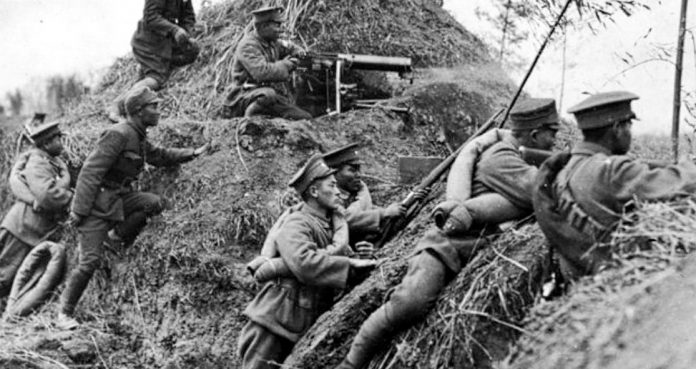On Sunday, a Japanese historian revealed a report documenting that the Imperial Japanese Army in China used chemical weapons.
A frontline nerve gas battalion of the Japanese army, which was posted in northern China, compiled the report.
The official report recorded that the battalion used weapons containing a blister agent and a sternutatory agent, a substance that causes sneezing, during the Second Sino-Japanese War in 1939, according to the Japanese historian, Seiya Matsuno.
The blister agent is known to cause inflammation the skin and mucous membranes and the sternutatory agent caused extreme pain in the respiratory system, resulting in sneezing.
Matsuno said that it was the first surprising discovery of a report in which the army itself reported using the poison gases.
The Imperial Japanese Army destroyed all records of the war after its defeat; however, it is believed an army member might have kept the discovered report.
Matsuno said, “Revealing what happened on the battlefield during the Sino-Japanese War is just the tip of the iceberg. We must investigate the truth in order to learn from it and prevent this tragic history from repeating itself.”
The report includes more than 100 pages that described the war. It also described records of shelling, details of the battle strategy, and copies of orders to use nerve gas weapons.
The report documented, “The battalion mapped out plans to use “yellow” shells, containing the blister agent, and “red” shells, containing the sternutatory agent, after receiving orders from their superiors.”
“During the battle on July 6, the Japanese army fired 31 “red” shells at a Chinese army position equipped with machine guns,” said the report. “It did the same on July 17, firing 60 “red” shells and 28 “yellow” shells to provide backup to infantry. The following day, the Japanese fired 140 “red” shells and 20 “yellow” shells,” the report mentioned.
“The army was well aware it was violating international law. It probably chose the location deep in the mountains of the province to use blister agent for the first time because it thought it would be harder to expose,” said Matsuno. According to the 1907 Hague Convention, the use of chemical weapons had been prohibited before the Second Sino-Japanese War, which Japan also approved.






















